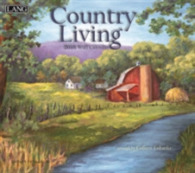基本説明
Essays discuss Kant's theory of cosmopolitanism versus Hegel's philosophy of geographical determinism; the tension of cosmopolitanism versus a closer embeddedness in place-scapes; regulation of gated communities in the United States; and the hermeneutics of Ground Zero.
Full Description
The contributors to this volume address global, regional, and local landscapes, cosmopolitan and indigenous cultures, and human and more-than-human ecology as they work to reveal place-specific tensional dynamics. Essays discuss Kant's theory of cosmopolitanism versus Hegel's philosophy of geographical determinism; the tension of cosmopolitanism versus a closer embeddedness in place-scapes; geographical determinism in the colonial practices of Colombia and in the current political rhetoric surrounding the revival of Saxony; preservational policies in Norway; regulation of gated communities in the United States; and the hermeneutics of Ground Zero. This unusual book, which covers such a wide-ranging array of topics, coheres into a work that will be a valuable reference for scholars of geography and the philosophy of place.
Contents
Chapter 1 On the Threshold of History: The Role of Nature and Africa In Hegel's Philosophy Chapter 2 Mapping Cultures, Histories, and Economic Development: Anthropology and the Colombian Carribean Chapter 3 Earthling or Cosmopolitan? The Limits of Interlocution Chapter 4 Democratizing the Transnational Corporate State: The Question of Environmental Nationalism Chapter 5 Castles Made of Sand: Territoriality and Exclusion in Coastal Aotearoa/New Zealand Chapter 6 Landscape and Meaning: The Immaterial Dimension of Environmental Preservation Chapter 7 Spatial Boundaries—Spatial Visions: The Case of Saxony Chapter 8 Knowing Our Places in Old & New Knowledge-Based Economies Chapter 9 Athens, Alexandria, Jerusalem: Heidegger and Levinas on The Other and the City Chapter 10 Contracting Neighborhood: Social Reality and Human Nature at Work in Suburbia Chapter 11 The Trail of the Tears of Ground Zero








